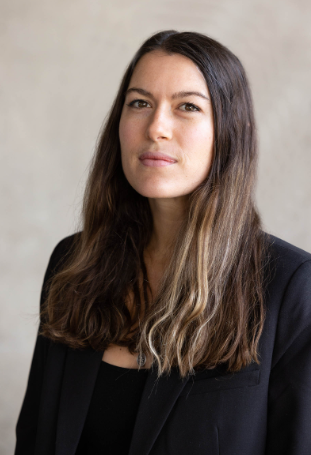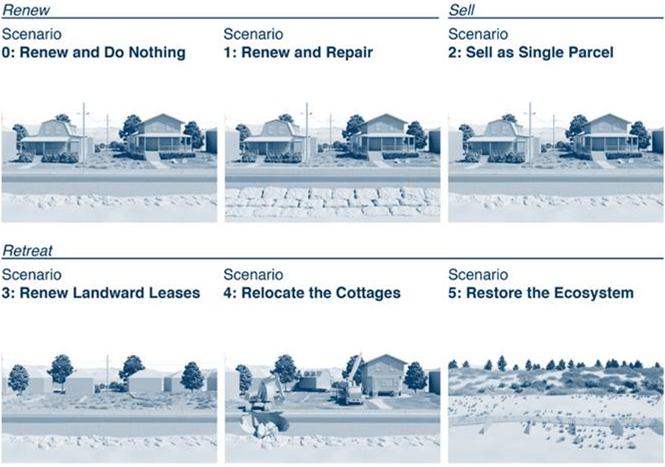About this Event
Scenario planning evolved out of military intelligence in the 1970s as a tool for corporations to make strategic plans in situations with multiple stakeholders and high degrees of uncertainty. Over the past forty years, the method has diversified across industries and disciplines due to its utility in complex decision making.
Place-based scenario planning is a method of strategic planning that leverages the skill set of landscape architects to assist decision makers choosing adaptation measures to avoid the worst impacts of the climate crisis. Complementary to probabilistic models that forecast future vulnerabilities, scenario planning draws upon scientific data to generate specific, localized future scenarios that reveal existing biases and frame new ways of thinking about the future, leveraging landscape architects’ skills in analysis and visualization to expand their public role.
The talk focuses on a case study of Long Beach, a coastal neighborhood in Rockport, Massachusetts. Illustrating six plausible future scenarios for adaptation within a continuous trajectory of change, the exercise uses design storytelling to celebrate people’s deep attachments to the landscape, elicit tacit knowledge, and build shared climate landscape literacy while planning for the future.
As a tool for practice and a pedagogical approach, place-based scenario planning embraces the multiplicity of narratives and complexities of place, generates diverse approaches to serve the public in the climate emergency, and engages the discipline in critical political and social movements.
Speaker
Kira Clingen is the Daniel Urban Kiley Fellow and Lecturer in Landscape Architecture at the Harvard Graduate School of Design. She is a climate design researcher whose research focuses on place-based scenario planning and visualizing climate futures through speculative fiction. She is also Research Affiliate at the Office for Urbanization at Harvard, where she was the project lead on Compound Vulnerabilities: The Case of Cape Ann, a multi-year scenario planning project looking at regional climate adaptation in coastal Massachusetts.
Kira holds a B.S. in Ecology and Evolutionary Biology and B.A. in Environmental Policy Studies from Rice University. She was a 2016 Thomas J. Watson Fellow, 2021 Planet Reimagined New Futures Fellow, 2023 Aspen Institute Climate Future Leader and is a founding member of the design collaborative APOCATOPIA. Her work has been published in Yale Paprika!, LUNCH Journal, The Plan Journal, and the Plant Humanities Lab at Dumbarton Oaks, among others. She was born, raised, and works on the Gulf of Maine.

Harvard University welcomes individuals with disabilities to participate in its programs and activities. If you would like to request accommodations or have questions about the physical access provided, please contact the Public Programs Office at (617) 496-2414 or [email protected] in advance of your participation or visit. Requests for American Sign Language interpreters and/or CART providers should be made at least two weeks in advance. Please note that the University will make every effort to secure services, but that services are subject to availability.
#GSDEVENTS
